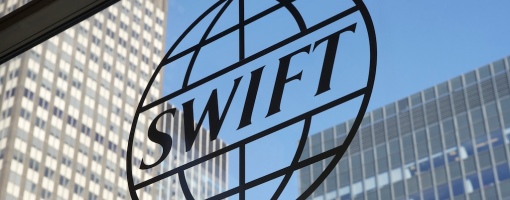Swift has announced two AI-based in experiments to investigate how the technology could prevent cross-border payments fraud.
For one project, Swift has partnered with ten financial institutions including BNY Mellon, Deutsche Bank and HSBC, to test how it can use AI to analyse anonymously-shared data from multiple sources in a way that will strengthen the global financial ecosystem.
The company said the ability for AI to facilitate confidential data sharing could be a “game-changer” for the industry, adding that the tests could lead to the wider use of information sharing in fraud detection by assessing cybersecurity threats.
The tests will utilise a secure infrastructure that will enable financial institutions to exchange relevant information with strong privacy-preserving controls. Swift said it will then use an AI anomaly detection model to gather insights and identify potential fraud patterns.
In a separate pilot, Swift is enhancing its existing Payment Controls service, which helps financial institutions detect anomalies that could be indicative of fraud. The company will use an AI model that it claims will create a more nuanced and accurate picture of potential fraud activity, using historical patterns of activity on the Swift network.
Swift will work with Payment Controls customers to refine the enhancement, whilst testing customers’ own live traffic data.
“AI has great potential to significantly reduce fraud in the financial industry,” said Tom Zschach, chief innovation officer at Swift. “That’s an incredibly exciting prospect, but one that will require strong collaboration.”
He continued: “Swift has a unique ability to bring financial organisations together to harness the benefits of AI in the interests of the industry, and we’re excited by the potential of both of these pilots to help further strengthen the cross-border payments ecosystem.”
In March, Swift announced that it had successfully orchestrated transactions across simulated digital trade, tokenised assets, and FX networks during testing for its central bank digital currency (CBDC) interlinking solution.
The move formed part of the second phase of the banking cooperative’s industry-wide experiment – with participation from 38 institutions, including central banks, commercial banks, and market infrastructures – which tested more complex use cases than those carried out in the organisation's initial trials, including piloting CBDCs for payments.
Latest News
-
Gemini to cut quarter of workforce and exit UK, EU and Australia as crypto slump forces retrenchment
-
Bank ABC’s mobile-only ila bank migrates to core banking platform
-
Visa launches platform to accelerate small business growth in US
-
NatWest to expand Accelerator programme to 50,000 members in 2026
-
BBVA joins European stablecoin coalition
-
eToro partners with Amundi to launch equity portfolio with exposure to ‘megatrends’
Creating value together: Strategic partnerships in the age of GCCs
As Global Capability Centres reshape the financial services landscape, one question stands out: how do leading banks balance in-house innovation with strategic partnerships to drive real transformation?
Data trust in the AI era: Building customer confidence through responsible banking
In the second episode of FStech’s three-part video podcast series sponsored by HCLTech, Sudip Lahiri, Executive Vice President & Head of Financial Services for Europe & UKI at HCLTech examines the critical relationship between data trust, transparency, and responsible AI implementation in financial services.
Banking's GenAI evolution: Beyond the hype, building the future
In the first episode of a three-part video podcast series sponsored by HCLTech, Sudip Lahiri, Executive Vice President & Head of Financial Services for Europe & UKI at HCLTech explores how financial institutions can navigate the transformative potential of Generative AI while building lasting foundations for innovation.
Beyond compliance: Building unshakeable operational resilience in financial services
In today's rapidly evolving financial landscape, operational resilience has become a critical focus for institutions worldwide. As regulatory requirements grow more complex and cyber threats, particularly ransomware, become increasingly sophisticated, financial services providers must adapt and strengthen their defences. The intersection of compliance, technology, and security presents both challenges and opportunities.
© 2019 Perspective Publishing Privacy & Cookies


.jpg)










Recent Stories